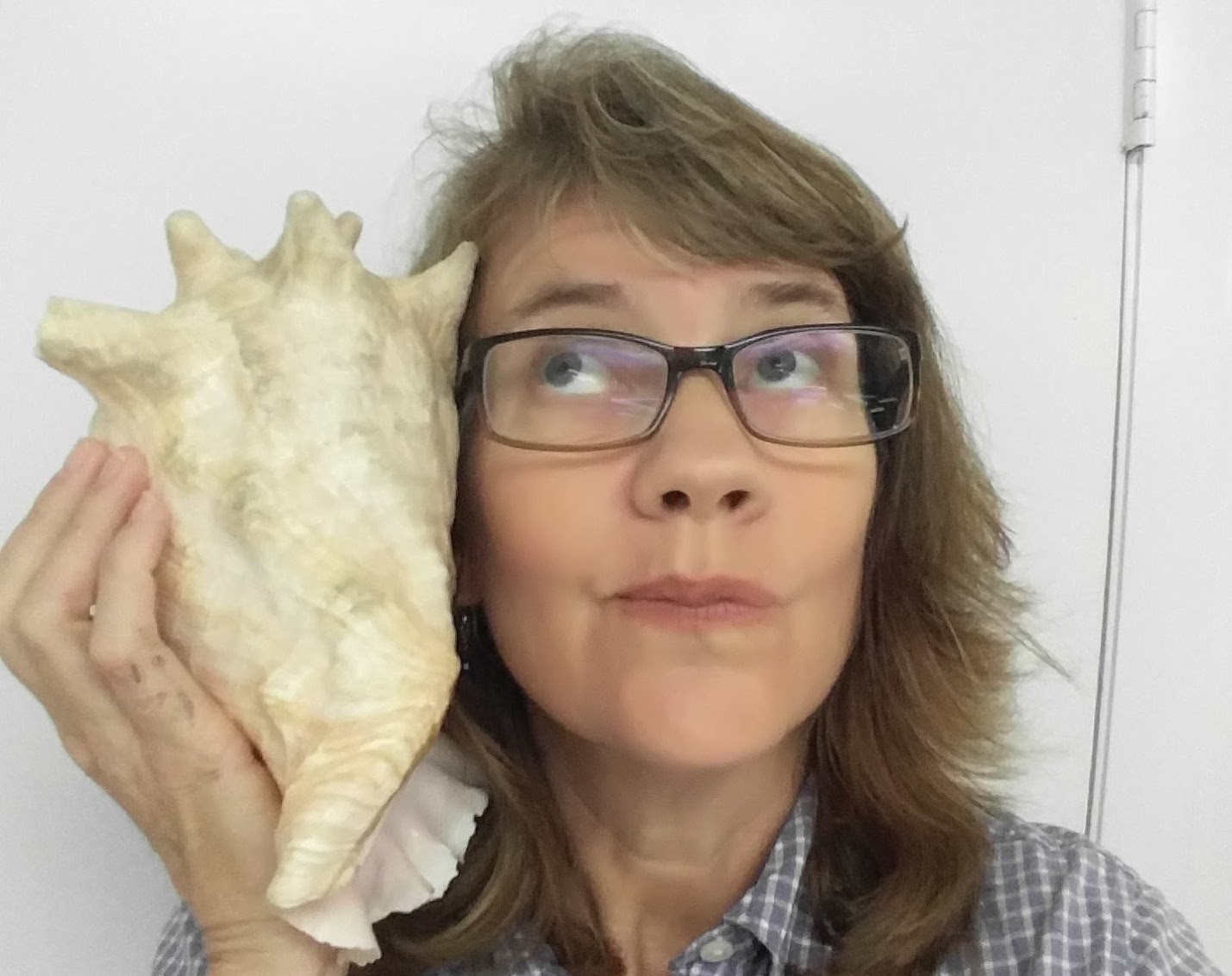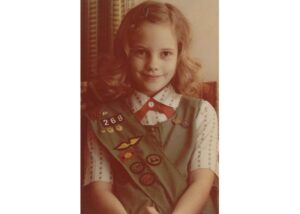
Cynthia Barnett with a conch to her ear. Courtesy of author
Cynthia Barnett teaches environmental journalism and nature writing at the University of Florida’s College of Journalism and Communications. She is the author of three books on water, including Rain: A Natural and Cultural History; her forthcoming book, The Sound of the Sea: Seashells and the Fate of the Oceans, is a cultural and natural history of mollusks. Before taking part in the Zócalo/Natural History Museum of Los Angeles County event “Can We All Become Conservationists?” Barnett chatted in the virtual green room about capturing the scent of rain, “walk-and-talk” office hours, and the best water she’s ever sampled.
What did you want to be when you grew up?
I always wanted to be a journalist, ever since I can remember, ever since I was the editor of my Girl Scout troop newspaper in fifth grade. Specifically, a newspaper reporter.
I think journalists often grow up with this outsized sense of justice—and maybe even indignation. And I’m not sure why, but I had those things.
Do you remember anything you published in that troop newspaper?
At one point I decided that I wanted to do an in-depth story on our troop leader because, unlike the other leaders and volunteers, she wasn’t a mom or related to any of the girls. I wanted to learn everything about her—and she didn’t let me do it! I was really offended. It kind of sparked my lifelong curiosity, and back to that sense of indignance, like, wait a minute, what do you mean I can’t tell your story?
So I don’t really remember the stories I did. But I remember the story that I didn’t get to do.

You’re the author of three books on water. What is the best water you’ve ever sampled?
The best water is the tap water that comes out of my sink at home [in Gainesville, Florida]. It comes from the Floridan aquifer, which is a really prodigious freshwater aquifer. And it’s really tasty. I don’t need a filter. The water is delicious, and it’s inexpensive. I feel really lucky to have the water that I do.
I think when water is delicious, it doesn’t have a taste per se. When water is bad, you know it. The best water is somewhat tasteless. It has a freshness to it, and a cleanliness to it. But not any kind of strength about it.
What’s the smell that’s most evocative for you?
Rain. That’s been true since my childhood.
When I set out to write a book of rain, I also wanted to research the scent of rain, and where that comes from. The work led me to this village in northern India, in Uttar Pradesh, where villagers for hundreds of years have captured the scent of rain from the earth after the monsoons.
I went through the whole process. The scent is called mitti attar, and it’s basically the scent of the earth. I still have a little tiny bottle of mitti attar. I’m nearly out of it. I really want to go back to this village and get another little bottle.
What’s been the best gift you’ve ever received?
The best gift I ever received was on my 37th birthday, when my daughter was born. She wasn’t due for two more weeks, and I wasn’t expecting it. It was the best day of my life. When I came home from the hospital that night, I had the flying dream. It’s the only time I’ve ever had the flying dream.
What’s the last book you read that inspired you?
Zora Neale Hurston’s Seraph on the Suwanee, the last book she published during her lifetime. It was heavily criticized because she tried to write a story about Florida crackers. Critics said she had turned her back on African American people, and they thought that hurt the novel—or that perhaps she had sold out and tried to write a novel for a white audience.
But when I read it, I was impressed that she had tried to do something completely different. I was also inspired by some of the beautiful water writing in Seraph. One of her characters longs for the sea “like a drop of water … homesick, and bound to make its way home someday.”
Speaking of your newest book, The Sound of the Sea: How do you celebrate reaching the end of a manuscript?
I’ve done this for each book—I’ve gone on nice long hikes in the woods with my family. I tend to finish books in springtime, and it’s a beautiful time. But the other thing is, each time I’ve finished a book, I sit in one place for so long, and I’ve been hunched over the computer for so long, that I almost feel atrophied. Just walking and stretching my legs and hearing the birds and smelling the flowers and the citrus—it really feels like coming out of a hospital or something.
You also teach environmental journalism at the University of Florida. Has the pandemic impacted your teaching style?
We’re going to have a walking theme in this call. Something I’ve done this year is offer walk-and-talk office hours. It’s been really hard to just teach on Zoom. We’ve had a lot of rich moments, and I’ve had great guest speakers. But I used to always take students on an overnight field trip—you know, we got outside, they did their reporting on the ground.
So these walk-and-talk office hours get us outside again. I think that’s important when we’ve all been in front of the screens too much. Also, there’s something about walking and talking that’s richer than sitting in my office. I think after COVID is over, I am going to continue it.



